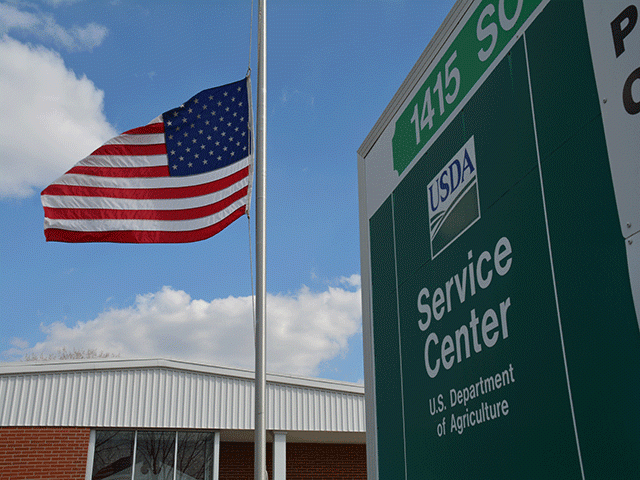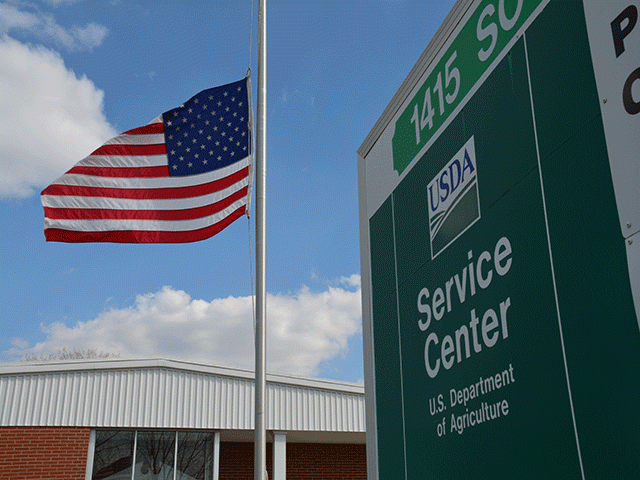Ag Policy Blog
FSA Rule on Farm Loan Changes Goes Into Effect
A new Farm Service Agency loan program rule has gone into effect.
The Enhancing Program Access and Delivery for Farm Loans rule is "designed to increase financial flexibility for agricultural producers, allowing them to grow their operations, boost profitability, and build long-term savings," FSA said in a news release.
The new rule includes:
-Low-interest installment set-aside program: Financially distressed borrowers can now defer up to one annual loan payment at a reduced interest rate. This simplified option helps ease financial pressure while keeping farming operations running smoothly.
-Flexible repayment terms: New repayment options give borrowers the ability to increase their cash flow and build working capital reserves, allowing for long-term financial planning that includes saving for retirement, education, and other future needs.
-Reduced collateral requirements: FSA has lowered the amount of additional loan security needed for direct farm loans, making it easier for borrowers to leverage their existing equity without putting their personal residence at risk.
USDA Farm Service Agency: https://www.fsa.usda.gov/…
Also see, "USDA Updating Collateral Requirements, Other Changes for Loan Program," https://www.dtnpf.com/…
AG GROUPS URGE BIDEN TO ADDRESS POTENTIAL PORT STRIKE
A coalition of 55 agriculture groups on Wednesday sent President Biden a letter urging his administration to act if the International Longshoremen's Association and the United States Maritime Alliance are unable to reach an agreement before the labor agreement expires on Monday.
"If port operations are stopped, the impact on the ag supply chain will quickly reverberate throughout agriculture and not only slow or shutdown operations, but also potentially lower farmgate prices," the groups including the National Grain and Feed Association wrote.
P[L1] D[0x0] M[300x250] OOP[F] ADUNIT[] T[]
"To prevent a disruption to port operations along the East and Gulf Coasts, we request for your administration to act before a lockout or strike occurs to prevent damage to U.S. agriculture and the economy.
"Approximately 40% of U.S. containerized agricultural exports move through East and Gulf Coast ports, and we believe the time has come for the U.S. government to intervene and ensure port operations do not stop," the groups said.
INDEPENDENT GROCERS URGE CANDIDATES TO SUPPORT FTC ANTITRUST ACTION
The National Grocers Association, which represents independent grocery stores, is part of a Mainstream Competition Coalition urging the presidential candidates to "support an economic policy agenda that strengthens antitrust laws and puts an end to anticompetitive economic discrimination against small and medium sized businesses."
The coalition sent letters to Vice President Harris and former President Trump explaining their views.
In a news release, the National Grocers Association said, "The MSCC is a coalition of main street businesses and agriculture producers that are committed to promoting competition and strengthening antitrust policies, especially reviving enforcement of the Robinson-Patman Act (RPA)."
"The RPA is a 90-year-old law that prohibits price discrimination, but has been ignored by antitrust enforcers for decades allowing bad actors to get away with undermining their competitors and consumers," the group said.
"For nearly 40 years, Robinson-Patman enforcement was abandoned, allowing monopolist firms to leverage their economic power to insulate themselves from competition," commented Chris Jones, the National Grocers Association's chief government relations officer and counsel.
"Industry consolidation and lax antitrust enforcement has decimated Main Street and left millions of American consumers with fewer options and higher prices," Jones said.
"If either candidate wants to help the financial wellbeing of American families and entrepreneurs, they will commit to supporting an economic agenda that strengthens and enforces the antitrust laws that are designed to allow businesses of all sizes to compete fairly," Jones said.
"Fortunately, the FTC is finally taking this bad behavior seriously and is reportedly moving closer towards enforcing the Robinson-Patman Act," the letter states.
"Just the threat of enforcement is beginning to have a positive impact for some MSCC members ... [and] the FTC's historic lawsuit to address the anticompetitive behaviors of pharmacy benefit managers is a critical first step to restoring competition to the pharmacy marketplace ...
"But this progress is not enough -- bold and aggressive antitrust enforcement is needed to enhance competition across all industries."
Lina Kahn, chairwoman of the FTC, has been vocal over the merger of grocery chains Kroger and Albertsons. A federal judge in Portland, Oregon, will decide a case between the FTC and the grocery chains over whether the merger will be allowed to close.
The Washington Post this week also ran an article highlighting the country's largest grocery retailers in each state. https://www.washingtonpost.com/…
DTN Ag Policy Editor Chris Clayton contributed to this report.
Jerry Hagstrom can be reached at jhagstrom@nationaljournal.com
Follow him on social platform X @hagstromreport
(c) Copyright 2024 DTN, LLC. All rights reserved.






Comments
To comment, please Log In or Join our Community .